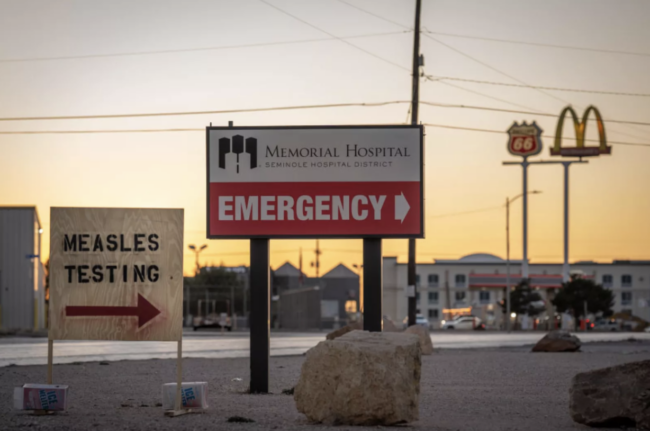In February 2025, Gaines County, Texas, reported that the first child who died of measles in the United States since 2003 was an unvaccinated six-year-old. In early March, Lea County, New Mexico, reported that the first adult died of measles since 2015 when a woman died from virus-induced pneumonia while on immunosuppressants.
These two deaths follow an extended period of anti-vaccination movements and conspiracy theories that discourage adults from vaccinating themselves and their children, possibly costing their lives.
The measles outbreak in Texas and, more recently, New Mexico has included over 200 cases so far; however, medical professionals report that this number is an undercount due to the speed of the rising cases of one of the most contagious viral diseases.
Measles, which is especially dangerous for young children and the elderly, is prevented by the MMR vaccine, and 90% of unvaccinated people who are exposed to the virus will be infected. Measles most commonly causes death due to pneumonia and encephalitis caused by the virus.
Despite the science that defends the idea that the measles vaccine is 97% effective after the two recommended doses and data that debunks the myth that it causes autism, 17.5% of kindergarteners in Gaines County had parents who filed for an exemption from vaccinations.
Donald Trump recently appointed Robert F. Kennedy Jr. as Secretary of Health and Human Services. In response to the measles outbreak in Texas, he endorsed vitamin A and steroid interventions instead of encouraging people to get vaccinated, which is the usual response. Both are medically valid once someone is infected; however, health and infection professionals continue to emphasize that prevention should be prioritized.
Additionally, vitamin A is most commonly used to treat measles in developing countries where patients already have vitamin A deficiencies and for patients where vitamin A deficiency directly correlates with the severity of the measles infection.
Vitamin A is especially influential in measles patients, The World Health Organization even recommends a daily oral dose of vitamin A for two days to children with measles. However, many believe that giving children high doses over long periods of time will prevent measles; in actuality, vitamin A taken over time becomes detrimental to children and can cause liver damage and hair loss without preventing measles at all.
“Vitamin A is recommended for children diagnosed with measles to help prevent complications, particularly in children who are hospitalized,” said Sean T. O’Leary, M.D., M.P.H., FAAP, chair of the AAP Committee on Infectious Diseases (COID). “It should not be used to try to prevent measles, and high doses of vitamin A are potentially very harmful. The only effective way to prevent measles is the MMR vaccine.”






